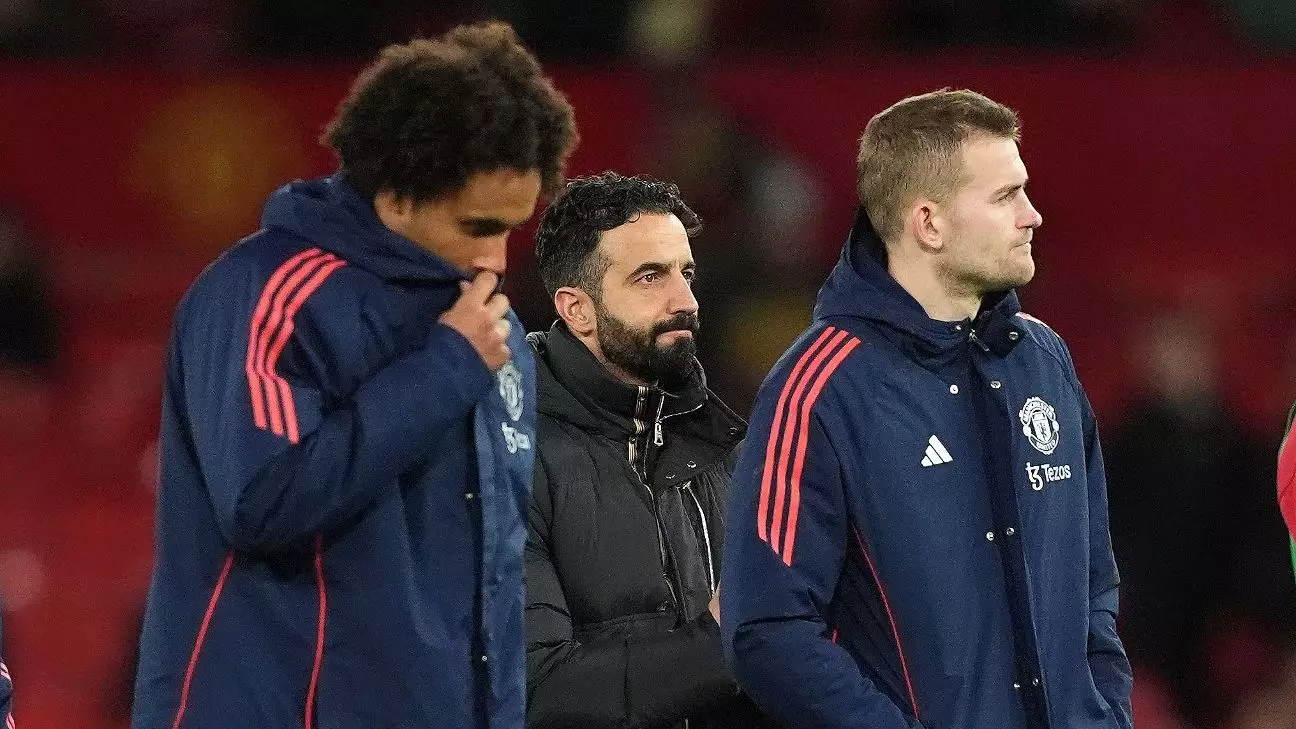Manchester United concluded 2024 with an alarming performance, earning a mere 51 points in the Premier League—an all-time low in the club’s history since the formation of the league in 1992. This distressing result not only marks the worst tally for the team since 1989 but also serves as a stark reminder of the historical challenges the club has faced. The stark reality of being closer to the relegation zone than to the Champions League qualifications underscores the gravity of United’s current situation. The defeat to Newcastle United exemplifies deeper issues within the club, signaling that the trajectory is far from promising.
The appointment of head coach Ruben Amorim in November after the dismissal of Erik ten Hag has not engendered a turnaround in results. With four wins and six losses from eleven matches, Amorim’s tenure has been tumultuous, hinting at systemic problems that transcend managerial changes. Analysis of the team’s performance during this period illustrates a lack of cohesiveness, strategic execution, and morale that is crucial for success in high-stakes Premiership encounters. The inability to stabilize following a managerial shake-up reflects a deeper malaise within the squad, one that seems resistant to improvement despite fresh leadership.
The current woes of Manchester United eerily parallel the difficulties faced under Sir Alex Ferguson in 1989. At that time, discontent among supporters reached a fever pitch, leading to calls for Ferguson’s departure. However, history indicates that patience can sometimes yield monumental rewards. The club’s performance in 1989 ultimately set the stage for Ferguson’s first significant triumph—the FA Cup just six months later. Fans today may feel a mix of frustration and hope, but repeated loss patterns—including historic lows like six defeats in December, reflecting the club’s worst form since 1930—raise critical questions about the future trajectory.
Compounding their offensive struggles, Manchester United’s defensive unit has been alarmingly porous, conceding 18 goals in December alone—the highest figure recorded since March 1964. The increasing vulnerability at the back points to urgent tactical reevaluations necessary to stem the flood of goals. There exists a pressing need for the coaching staff to identify whether the breakdown lies in personnel, formations, or perhaps even in the tactics themselves. Understanding and rectifying these defensive issues will be crucial if United is to salvage any semblance of respectability in the remaining months of the season.
Looking forward, the upcoming clash against league leaders Liverpool at Anfield presents a daunting challenge for Manchester United. This match will not only serve as a litmus test for Amorim’s strategy but could also significantly impact player morale and fan trust in the management. Ironically, this dire situation could catalyze transformations, reminiscent of the pivotal shifts seen in the past. The club’s leadership must critically assess all aspects, from player performance to managerial direction, as the weight of history looms large over the present struggles. A turnaround is not impossible, but it will require collective effort, strategic modifications, and perhaps, a bit of fortuity to reclaim Manchester United’s status as one of England’s football powerhouses.

